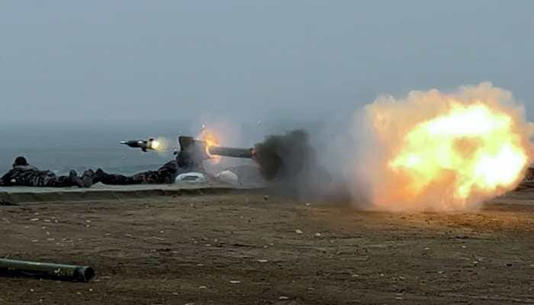India-Pakistan Conflict Latest Updates: After three days of major standoff between India and Pakistan, both countries agreed on a ceasefire agreement to halt all military action on land, air and sea. While India said the agreement was reached due to talks between the Directors General of Military Operations of both sides, the United States said it brokered peace after 48 hours of discussions. Pakistan also thanked the US for its support. However, current trends suggest that there is no end to hostilities as the border areas continue to remain on alert. With this, India’s Operation Sindoor came to a halt but it did not end due to the trust deficit with Pakistan. Key Points:

India and Pakistan agreed on ceasefire agreement, New Delhi said it was initiated by Pakistan. India’s Foreign Secretary Vikram Misri said Pakistan’s DGMO called the Indian counterpart requesting a ceasefire and India agreed to the demand.
India said the Indus Water Treaty and visas remain suspended despite the ceasefire agreement. India revised its policy to say any terrorist incident in India will be treated as an act of war and will be responded to with military action. The Indian Army said it was in alert mode to counter any misadventure by Pakistan. Soon after the ceasefire, the Pakistan Army started violating the ceasefire in the areas of Akhnoor and Rajouri, while Pakistani drones were seen in Srinagar and other areas. “While we will follow the consensus arrived at between the Indian Army, Indian Navy and Indian Air Force, we remain fully prepared and vigilant and committed to protect the sovereignty and integrity of the motherland. Every audacity by Pakistan has been met firmly. Every escalation in future will invite a decisive response. We are fully prepared to undertake whatever operation may be required in defence of the nation,” Commodore Raghu R Nair said. Pakistani Prime Minister Shehbaz Sharif thanked US President Donald Trump and Vice President JD Vance. “Pakistan believes this is a new beginning towards resolving issues that have troubled the region and impeded its path towards peace, prosperity and stability,” Sharif said. Countries such as Turkey, China, the United States, the European Union, Saudi Arabia, the United Arab Emirates and Azerbaijan welcomed the ceasefire and urged India and Pakistan to resolve differences through dialogue. United Nations Secretary-General Antonio Guterres also welcomed the ceasefire. A UN statement said, “The Secretary-General welcomes the ceasefire agreement between India and Pakistan, which is a positive step towards ending the current hostilities and reducing tensions. He hopes that this agreement will contribute to lasting peace and promote a conducive atmosphere for addressing broader, long-term issues between the two countries.” As of May 11, peace prevails along the border and life is returning to normal in the border areas. After 11 pm last night, there have been no reports of ceasefire violations or drone attacks from Pakistan. The Indian Army is in alert mode and is keeping a close watch. This has triggered Operation Sindoor of the Indian Armed Forces. India launched ‘Operation Sindoor’ on the night of May 7-8, carrying out precision strikes on 9 terror camps in Pakistan and Pakistan-occupied Kashmir. While India called it a non-military and non-provocative action, the Pakistani Army carried out drone and missile attacks on India since May 8. After Pakistan failed to prevent attacks against India, the Indian armed forces went inside Pakistan and attacked, targeting at least 10 Pakistan Air Force bases, neutralizing two air defence systems and destroying several Pakistan Army infrastructure. While India attacked cities like Lahore, Karachi, Peshawar, Islamabad, Rawalpindi and Sialkot, Pakistan fired a Fatah-I missile at India, which was shot down by the Indian air defence system in Sirsa, Haryana.
‘Operation Sindoor’ was India’s action against the terror infrastructure after the Pahalgam terror attack in which Pakistan-backed terrorists killed 26 tourists in Jammu and Kashmir on April 22. The situation has returned to normal in Rajouri, Akhnoor, Ferozepur, Kutch and other border towns. However, the Border Security Force and the Indian Army are on high alert.

